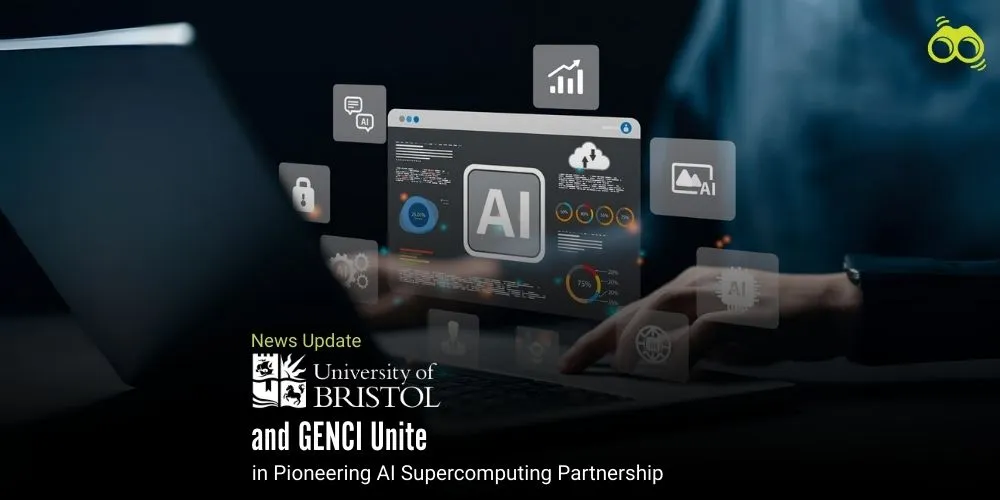UK-France Partnership to Drive AI Applications in Science, Engineering, and Medicine
University of Bristol and GENCI Unite to Strengthen European AI Ecosystem
As artificial intelligence (AI) and high-performance computing continue to reshape global research and innovation, robust international partnerships have become increasingly vital. In recognition of this need, the United Kingdom and France announced a major new supercomputing collaboration on 10 July. This strategic initiative strengthens both nations’ national AI capabilities while contributing to the broader European AI ecosystem. Already recognised as global leaders in applying AI across science, industry, and public services, the UK and France hope this partnership will foster deeper scientific cooperation and accelerate technological progress.
The collaboration will involve the Bristol Centre for Supercomputing (BriCS) at the University of Bristol and France’s Grand équipement national de calcul intensif (GENCI). Together, these institutions will work to establish a robust supercomputing framework that benefits their respective research communities and supports Europe’s wider scientific infrastructure. The partnership will focus on AI applications in key domains including materials science, life sciences, medicine, cybersecurity, energy, engineering, and AI safety.
In addition to research collaboration, the initiative will encompass joint engagement with industry, coordinated training programmes, and the exchange of researchers and students. Plans also include hosting hackathons and scientific seminars to promote knowledge sharing and innovation across borders.
Moreover, the partnership will explore emerging AI methodologies such as federated and distributed learning, cost-efficient AI systems, and agentic models. Both BriCS and GENCI will jointly monitor developments in AI-related hardware and software to ensure they remain at the forefront of global technological trends. Professor Simon McIntosh-Smith, Director of BriCS, expressed strong support for the collaboration, noting that the successful delivery of the centre’s AI supercomputer, Isambard-AI, ranked 11th fastest and 4th greenest in the world, positions the University of Bristol to co-lead this initiative effectively alongside GENCI.
Similarly, Professor Evelyn Welch, Vice-Chancellor and President of the University of Bristol, conveyed pride in establishing this pioneering European partnership. She emphasised that the collaboration would strengthen ties with French institutions and reaffirm the university’s commitment to advancing the UK’s AI and supercomputing strategy. Professor Welch also highlighted that the initiative would accelerate essential research and drive innovation both nationally and internationally. This UK-France supercomputing partnership marks a significant step towards building a collaborative, future-ready AI ecosystem that supports scientific excellence across Europe.
Editor’s Note:
The newly announced UK-France supercomputing partnership marks a significant step forward in international scientific collaboration at a time when artificial intelligence and high-performance computing are rapidly transforming global research and innovation. This initiative between the University of Bristol’s Bristol Centre for Supercomputing (BriCS) and France’s GENCI reflects a shared commitment to advancing AI capabilities while strengthening the broader European research ecosystem. What makes this collaboration especially important is its holistic approach. It goes beyond technical development to include joint training programmes, student and researcher exchanges, and industry engagement, all critical to building a resilient and inclusive AI future. With a focus on real-world applications in fields such as life sciences, materials engineering, cybersecurity, and energy, the partnership shows how universities can play a leading role in shaping responsible and impactful technological progress.
In Skoobuzz’s view, this initiative holds the potential to deliver long-term societal benefits, from advancing scientific research to shaping more resilient and inclusive technological ecosystems.














0 Comments (Please Login To Continue)